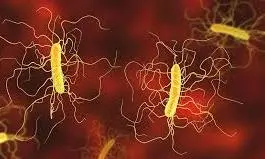
Scientists discover electricity-generating bacteria, may power future technology
text_fieldsIn a groundbreaking discovery, scientists at Rice University have identified a type of bacteria capable of "breathing" by producing electricity.
It is an ability that could lead to major breakthroughs in biotechnology, sustainable energy, and environmental science.
Unlike most organisms that depend on oxygen to metabolise food and generate energy, these bacteria use an entirely different strategy. The team found that they rely on a process called extracellular respiration, where instead of inhaling oxygen, they push electrons into their surroundings—similar to how a battery releases an electric current.
“These newly discovered mechanism of respiration is a simple and ingenious way to get the job done,” explained Biki Bapi Kundu, a doctoral student at Rice University and the study’s first author. “Naphthoquinones act like molecular couriers, carrying electrons out of the cell so the bacteria can break down food and generate energy.”
The study, published in Cell, reveals that these bacteria utilise naturally occurring compounds known as naphthoquinones to ferry electrons outside the cell. By transferring electrons to external surfaces, they are able to survive and thrive in environments lacking oxygen.
To better understand this, researchers created oxygen-free environments rich in conductive materials and used computer simulations to monitor bacterial behaviour. They discovered that when these microbes were placed on conductive surfaces, they continued to grow and generate electricity—essentially “breathing” through the material.
This marks the first time scientists have fully understood the inner workings of this unusual respiration method, despite it being used in biotechnology applications for years.
The implications are significant. These electricity-generating bacteria could help balance electron flows in critical processes such as wastewater treatment, biomanufacturing, and even pollution control. Moreover, the technology holds promise for innovations in medical diagnostics and tools for space exploration.
“Our research not only solves a long-standing scientific mystery, but it also points to a new and potentially widespread survival strategy in nature,” said Caroline Ajo-Franklin, professor of biosciences at Rice University, who led the study.
She added, “It opens the door to building smarter, more sustainable technologies with biology at the core.”












